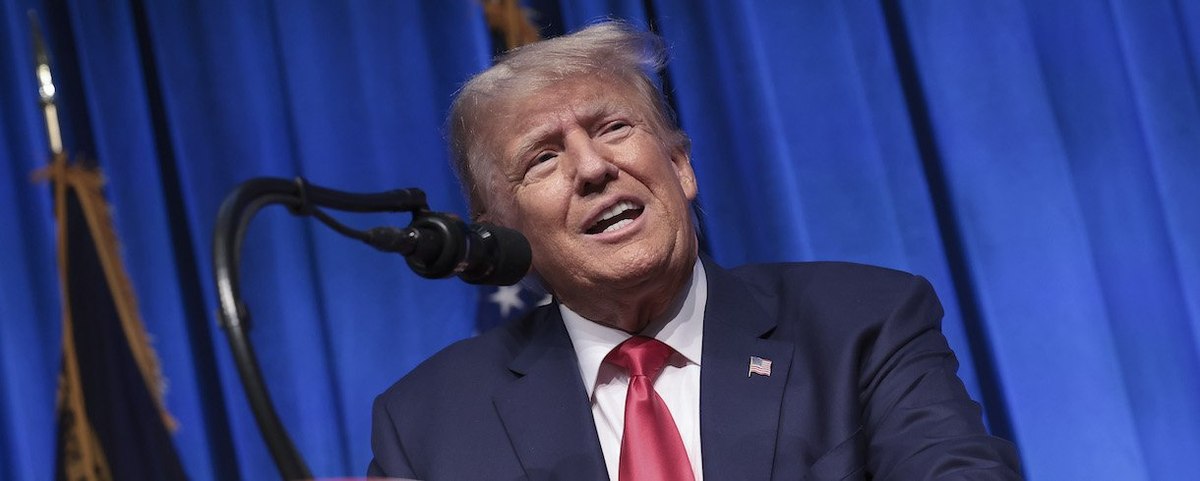Donald Trump's victory in Tuesday's New Hampshire primary cements the former president's dominance in the race for the 2024 Republican nomination.
Trump is the preferred nominee of 69% of Republican-leaning voters — that is, registered voters who are Republicans and Independents who lean Republican — according to the most recent Economist/YouGov poll. His only remaining major rival seeking the nomination, Nikki Haley, is the top choice of just 15%. (Another 14% say Ron DeSantis — who dropped out of the race while the poll was being conducted — is their top choice.)
Only 10% of Republican-leaning voters say they would be "enthusiastic" if Haley were the nominee, while 47% say they would be "dissatisfied" or "upset." In contrast, 61% of Republican-leaning voters would be enthusiastic about Trump as the nominee, compared to 15% who would be dissatisfied or upset.
This widespread support for Trump is not new this campaign season. Trump has had a huge lead in Economist/YouGov polling about the Republican nomination since June 2023, and his lead has only grown over time — from 25 percentage points ahead of his closest rival in June 2023 to 54 points ahead of Haley now.
The prior week's Economist/YouGov poll shows that Trump has commanding leads for the nomination among just about any subgroup of Republican-leaning voters whose support we can measure: among younger and older ones, among those with and without college degrees, among men and women, and among those who say their ideology is "very conservative," "conservative," or moderate or liberal.
Should Trump become the Republican nominee, and should incumbent President Joe Biden become the Democratic nominee, Economist/YouGov polling finds Americans are closely divided between the two. The most recent poll had Trump with support from 44% of registered voters and Biden at 43%. Trump and Biden have been tied, or close to it, for months.
— Carl Bialik contributed to this article
Related: What Americans think about the 2024 presidential race
See the toplines and crosstabs from the Economist/YouGov poll conducted on January 21 - 23, 2024 among 1664 U.S. adult citizens.
Methodology: Respondents were selected from YouGov’s opt-in panel using sample matching. A random sample (stratified by gender, age, race, education, geographic region, and voter registration) was selected from the 2019 American Community Survey. The sample was weighted according to gender, age, race, education, 2020 election turnout and presidential vote, baseline party identification, and current voter registration status. Demographic weighting targets come from the 2019 American Community Survey. Baseline party identification is the respondent’s most recent answer given prior to November 1, 2022, and is weighted to the estimated distribution at that time (33% Democratic, 31% Republican). The margin of error for the overall sample is approximately 3%.
Image: Getty









